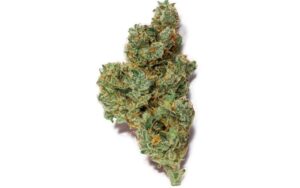When considering Delta 8 and HHC Hexahydrocannabinol cannabis, understanding the distinctions between these two cannabinoids is crucial. Both Delta 8 and HHC are part of the growing trend of hemp-derived products that offer consumers alternatives to the more well-known Delta 9 THC. Although they are chemically similar, they provide different effects, legality concerns, and potential health benefits. Here’s what you need to know to make an informed choice between the two.

Delta 8 THC: Overview and Effects
Delta 8 THC, short for delta-8-tetrahydrocannabinol, is a naturally occurring cannabinoid found in cannabis, but in much smaller quantities than its more famous cousin, Delta 9 THC. Delta 8 offers users a milder psychoactive experience, making it an attractive option for those who want to enjoy the benefits of THC without the intense high that Delta 9 can produce. For many users, Delta 8 delivers a smooth, clear-headed high, making it a good option for daytime use or those who need to stay functional while experiencing the effects. One of the primary reasons for the rising popularity of Delta 8 is its reduced psychoactivity. Users often describe a sense of relaxation, mild euphoria, and pain relief without the anxiety or paranoia that can sometimes accompany Delta 9. This makes it particularly appealing to those who are sensitive to the effects of Delta 9 or new to cannabis. Additionally, Delta 8 is generally more accessible, as it is derived from hemp and often falls into a legal gray area, particularly in regions where Delta 9 remains restricted.
HHC: An Emerging Cannabinoid
HHC, or Hexahydrocannabinol, is a lesser-known cannabinoid that has recently gained attention in the cannabis market. It is a hydrogenated form of delta 8 or hhc, meaning its chemical structure is slightly altered. This alteration makes HHC more stable and gives it a longer shelf life than Delta 8 and other cannabinoids. While HHC is also psychoactive, its effects are often compared to a cross between Delta 8 and Delta 9 THC. Users report experiencing a more potent high than Delta 8, but with less intensity than Delta 9. This makes it suitable for those seeking a stronger experience than Delta 8, but still wanting to avoid the overwhelming effects of traditional THC. Some consumers also report that HHC has more pronounced relaxing and mood-enhancing effects, making it a popular choice for those looking to unwind or manage stress. However, since HHC is relatively new on the market, there is limited research on its long-term effects or therapeutic potential compared to Delta 8.
Legality and Availability
The legal status of both Delta 8 and HHC can be somewhat confusing. Delta 8 is derived from hemp, which became federally legal in the United States under the 2018 Farm Bill. However, individual states have enacted their own laws regarding Delta 8, with some banning its sale and use entirely. HHC, on the other hand, exists in an even murkier legal space. Since it is also derived from hemp, it could technically be considered legal under the Farm Bill, but as with Delta 8, state regulations can vary.
